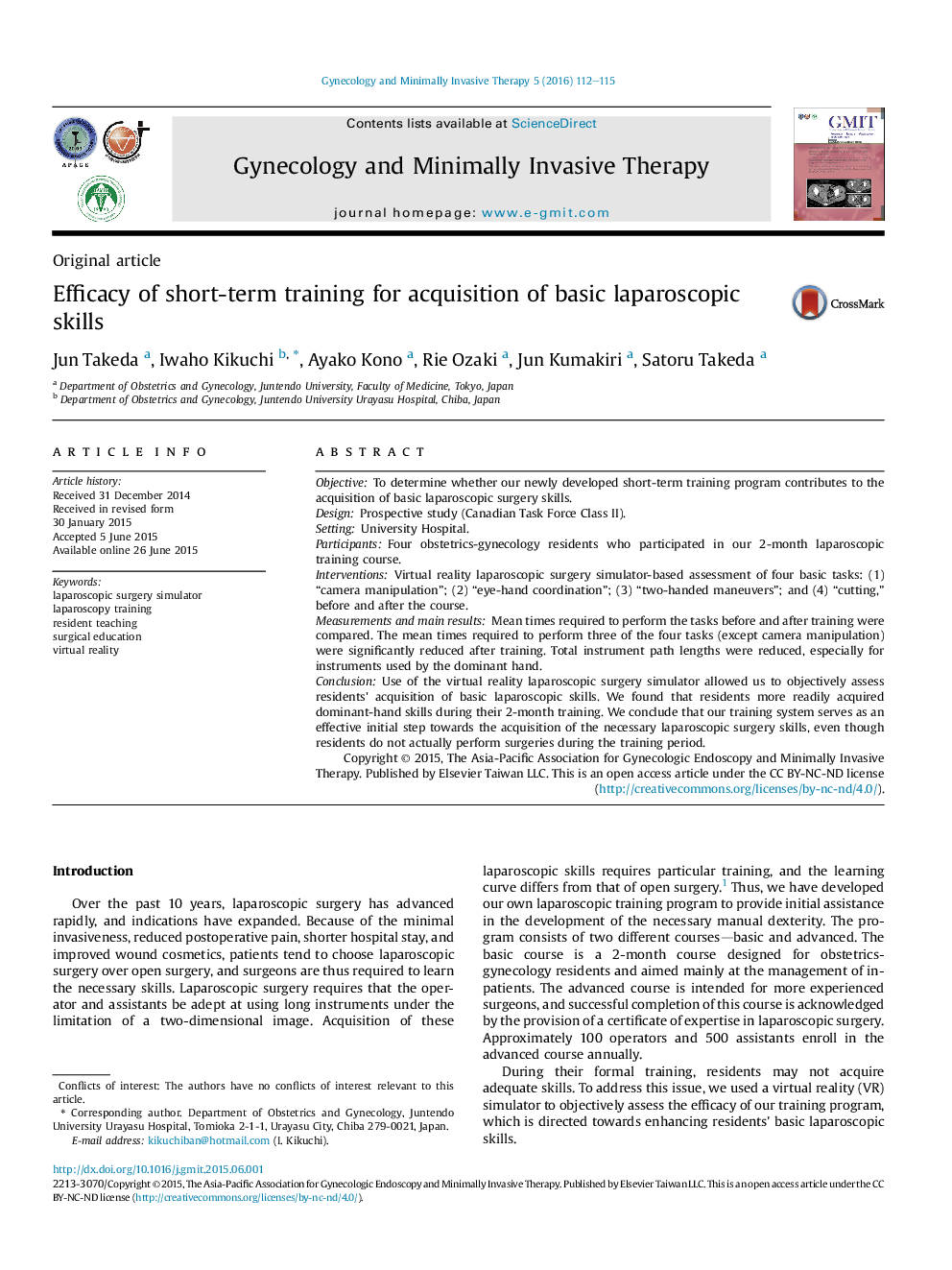| Article ID | Journal | Published Year | Pages | File Type |
|---|---|---|---|---|
| 3948261 | Gynecology and Minimally Invasive Therapy | 2016 | 4 Pages |
ObjectiveTo determine whether our newly developed short-term training program contributes to the acquisition of basic laparoscopic surgery skills.DesignProspective study (Canadian Task Force Class II).SettingUniversity Hospital.ParticipantsFour obstetrics-gynecology residents who participated in our 2-month laparoscopic training course.InterventionsVirtual reality laparoscopic surgery simulator-based assessment of four basic tasks: (1) “camera manipulation”; (2) “eye-hand coordination”; (3) “two-handed maneuvers”; and (4) “cutting,” before and after the course.Measurements and main resultsMean times required to perform the tasks before and after training were compared. The mean times required to perform three of the four tasks (except camera manipulation) were significantly reduced after training. Total instrument path lengths were reduced, especially for instruments used by the dominant hand.ConclusionUse of the virtual reality laparoscopic surgery simulator allowed us to objectively assess residents' acquisition of basic laparoscopic skills. We found that residents more readily acquired dominant-hand skills during their 2-month training. We conclude that our training system serves as an effective initial step towards the acquisition of the necessary laparoscopic surgery skills, even though residents do not actually perform surgeries during the training period.
